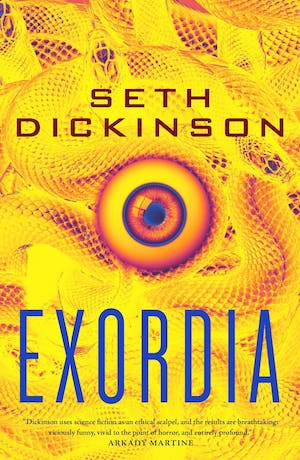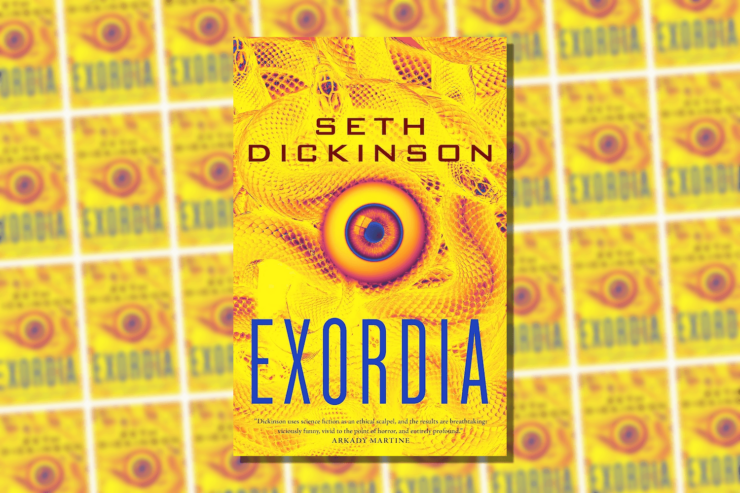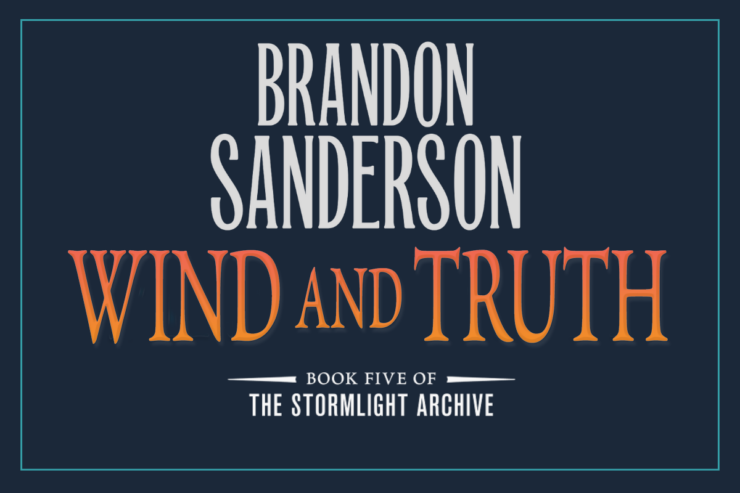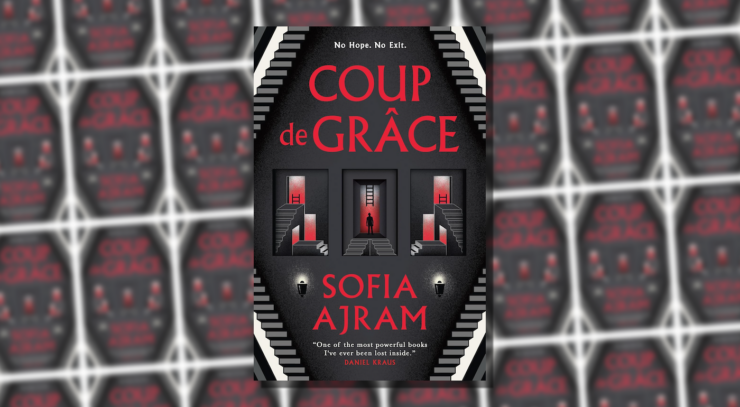What would you do if you met an alien in Central Park?
Anna Sinjari has a plan. Anna Sinjari knows exactly what she would do—and though it doesn’t quite work out the way she thinks it should, it gets the alien’s attention. Enter Ssrin, hydra-headed and beautiful, who finds Anna again after that first encounter, crawling wounded into her shower. Ssrin is clearly dangerous, with a dozen different types of venom contained throughout her heads and a taste for red meat. Not to mention, she’s on the run from something even deadlier than she is. But none of that matters to Anna—she and Ssrin are inexorably, narratively drawn together.
Exordia has a fascinating, complex, metaphysical order at play—and it wastes little time establishing it. Ssrin tells Anna that she has a soul, an imprint of her mind in the realm of virtue and meaning that allows for bending and breaking pure physical determinism—that is, establishing free will. The soul was established by the dead creator gods so that the universe would not be overrun by swarms of solely self-replicating creatures…but they screwed it up in the process. A soul that breaks physics can be exploited so that the correct configuration of thoughts can warp the universe itself; and the rulers of the galaxy, the Exordia, have figured out how to enslave souls to drive machines or build weapons that mark their enemies’ souls for damnation.
Buy the Book


Exordia
Souls tell stories, and souls abide by the rules of the stories. There are seven great passions, bonds between souls, stories that are told over and over again—it is the last of them, serendure, similar souls drawn together whether they want to be or not, that has drawn Ssrin to Anna. “It’s very unlikely you’ll die right now,” Ssrin tells Anna during a dangerous undertaking—not because Anna is specially protected or secretly resistant to alien technology, but because “it wouldn’t be narratively complete.”
But the Exordia want everyone to abide by the rules of their story and their story alone, in which they are the rulers and the galaxy’s life are the ruled. Only they haven’t bothered to reach Earth yet, and so Ssrin is chasing something here——an old story, an artifact—that has a chance to break the Exordia’s iron grip.
And then the artifact appears, and plunges the world into disaster as the Exordia show up looking for it. And the book becomes not just Anna and Ssrin’s story, but that of the soldiers and scientists and ordinary people caught up in its investigation on Earth, human stories and alien colliding.
One of the very human stories at the center of Exordia is that of the Kurds, brought into focus as the alien artifact surfaces in the mountains of Kurdistan. That means the soldiers and their scientific divisions of the US, Russian, and Chinese military sent to understand it can’t be treated as the glorified saviors of humanity against alien invaders—because in Kurdistan, each country is already an invader or betrayer of the Kurds almost as foreign as the artifact itself. As Dickinson says, the book’s long road to publishing (from first draft in 2017 to publishing in 2024) was enough time to see the US abandon the Kurds in Syria again in 2019. Anna herself is a survivor of the Anfal genocide of the Kurds, grappling with the choices she was forced to make as she returns home.
Where Dickinson succeeds—where he turns Exordia into a truly exhilarating, dizzying work—is that he can take these human stories, human choices on the personal and on the international scale, and set them against a deeply alien intelligence. What do we look like to eyes wholly unfamiliar with our heuristics, our shortcomings, our wants and our needs? What choices still matter, then, for ourselves or for our soul?
On my first read, I was a little overwhelmed by the dense explanations of the soul and its manipulations barely two chapters in. Couldn’t Dickinson have eased us in? I wondered, couldn’t he have shown us bits and pieces of the whole rather than undercutting known cosmology in one fell swoop? But as I read further, I understood why Dickinson needed to lead up front with the spiritual intricacies.
Once we as readers have those tools, our understanding of the soul become a lens that magnifies and unravels every character we follow: from Major Erik Wygaunt’s lockstep moral code, his personal unwavering righteousness; to Deputy National Security Advisor Clayton Hunt’s layered, for-the-greater-good schemes; to Professor Li Aixue’s focus on mathematical underpinnings that blinds her to the world around her. Sometimes, those traits benefit them; more often, especially as our cast run up against one other, they frustrate or confound the people around them. But we as readers are taught to read these traits at a deeper level, to understand the shape of Wygaunt’s and Hunt’s and Aixue’s souls and how they fit into the seven great passions Ssrin describes.
Exordia is a book that grabs your attention and doesn’t let it go: Dickinson creates a world that feels twice as vivid as normal and does it without ever slowing down the frenetic pace of the plot. It can be a lot to handle—Exordia certainly isn’t light bedside reading—but it’s an incredible work and an enthralling way to kick off your 2024 reading.
Exordia is published by Tordotcom Publishing.














